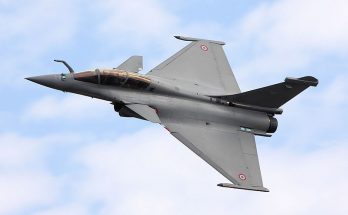On March 17, the Parliament of Spain ratified the accession protocol for North Macedonia’s NATO membership bid. By doing so, Spain became the 29th and final member state to approve the protocol, thereby clearing the way for North Macedonia to finally enter the Alliance.
The Spanish Senate has just ratified North Macedonia’s accession to #NATO. With that, all Allies have welcomed our soon-to-be 30th member. Congratulations, North Macedonia! pic.twitter.com/3wEQiFawiC
— Jens Stoltenberg (@jensstoltenberg) March 17, 2020
The path for North Macedonia toward NATO membership has been long and winding, marked by a particularly rancorous name dispute with neighboring Greece.
Following the breakup of the former Yugoslav Republic in the early 1990s, the newly independent nation occupied part of what is considered the greater Macedonia region, some of which extended into northern Greece. Greece took umbrage at the use of the name Macedonia and was also upset with the perceived Macedonian use of Hellenic names and symbols, particularly use of the “star of Vergina” in the Macedonian flag, which the Greeks viewed as incendiary. The Greek government believed that by calling the nation Macedonia, the new state was implying claims on the Greek territory of the same name.
From this point forward, Macedonia’s desire to be accepted into the NATO Alliance and European Union faced an immovable roadblock in Greece’s veto power in both entities. Membership in NATO must be unanimously approved by all partners, thus eliminating Macedonia’s chances without achieving a suitable compromise with Athens.
Having entered into NATO’s Partnership for Peace (PfP) in 1995 followed by formally initiating a membership path at the Washington Summit in 1999, Macedonia embarked on what it conceived as a logical step-by-step journey. That journey included former Soviet bloc states in Estonia, Latvia and Lithuania, as well as neighboring Albania and Croatia. Macedonia joined the latter two countries in signing the Adriatic Charter on May 2, 2003, an association under the guiding influence of the United States that aimed to improve NATO membership chances.
A bitter blow came five years later when Skopje saw its invitation fall by the wayside at the April 2008 NATO summit in Bucharest due to the name dispute with Greece, while fellow Adriatic Charter members Albania and Croatia were both invited to join NATO (each officially entered the Alliance a year later).
The result did little to move the Macedonian and Greek governments toward a workable name compromise, and another 10 years came and went before the prime ministers of the two nations were able to reach an informal agreement on the newly revised name of North Macedonia in June 2018. The agreement required a national referendum in Macedonia, which was held on September 30, 2018, followed by ratification in Parliament less than a month later on October 19. An amendment to the Constitution changing the name was passed in Parliament on January 11, 2019, paving the way for the Greek Parliament to approve the so-called Lake Prespa agreement two weeks later on January 25.
The name change opened the way for the newly reminted North Macedonia to join NATO – and apply to join the European Union. The pathway for membership in the former is now clear, making it simply a matter of time before the number of NATO member states grows to 30.
Dan Darling is Forecast International’s director of military and defense markets. In this role, Dan oversees a team of analysts tasked with covering everything from budgeting to weapons systems to defense electronics and military aerospace. Additionally, for over 17 years Dan has, at various times, authored the International Military Markets reports for Europe, Eurasia, the Middle East and the Asia-Pacific region.
Dan's work has been cited in Defense News, Real Clear Defense, Asian Military Review, Al Jazeera, and Financial Express, among others, and he has also contributed commentary to The Diplomat, The National Interest and World Politics Review. He has been quoted in Arabian Business, the Financial Times, Flight International, The New York Times, Bloomberg and National Defense Magazine.
In addition, Dan has made guest appearances on the online radio show Midrats and on The Media Line, as well as The Red Line Podcast, plus media appearances on France 24 and World Is One News (WION).




